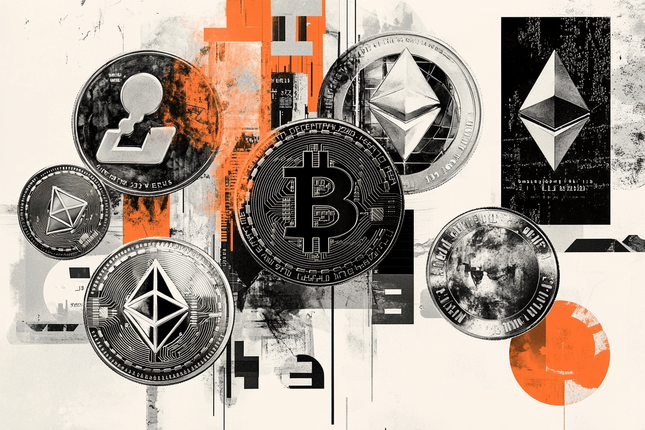- Alibaba stockholders are worried the stock will be delisted in the US like DIDI.
- BABA stock has fallen 65% since its all-time high.
- DIDI hopes to relist shares in Hong Kong.
Alibaba (BABA) is feeling the weight of other US-listed Chinese stocks as ride hailing company DiDi Global (DIDI) announced it would attempt to delist its shares from the New York Stock Exchange on Friday. Shares careened more than 10% lower, dropping under $110. BABA stock was down more than 3% in Friday's premarket ahead of the open, demonstrating that institutional investors may have more faith than retail.
Alibaba (BABA) Stock News: The DiDi effect
On Friday morning, DiDi announced the policy of delisting on its Weibo account. "Following careful research, the company will immediately start delisting on the New York Stock Exchange and start preparations for listing in Hong Kong," the post read.
Shares of the rider hailing king of China sank 9% in the premarket. Chinese regulators have been pressuring DiDi executives to delist the shares since November after bringing their weight to bear immediately after the stock had its New York IPO five months ago, according to Reuters. DIDI shares fell 8.2% to $7.16 at the open on Friday.
As soon as the stock debuted on the NYSE at the end of June, Chinese government officials barred DiDi's suite of apps from accepting new customers.
DiDi said it hopes to move the shares to another exchange but added that it would hold a vote to determine a strategy with US shareholders.
Alibaba is of course caught in the crosshairs as it has one of the most popular US-listed American Depository Shares (ADRs). Since its IPO in 2014, Alibaba has been a darling of Wall Street and US hedge funds. Since CEO Jack Ma ran afoul of Chinese regulators back in October of 2020, its former subsidiary ANT financial had its IPO cancelled and BABA stock has lost 65% of its value.
BABA key statistics
| Market Cap | $362 billion |
| Price/Earnings | 19 |
| Price/Sales | 3 |
| Price/Book | 2 |
| Enterprise Value | $313 billion |
| Operating Margin | 13% |
| Profit Margin |
15% |
| 52-week high | $274.29 |
| 52-week low | $110.79 |
| Short Interest | 2% |
| Average Wall Street Rating and Price Target | Buy, $213.23 |
Alibaba (BABA) Stock Forecast: BABA could fall to $87 if it does not hold at $109
BABA stock price is now at a four-and-a-half year low near $111 in the early part of Friday's session. It is now trading for just three times revenue.
With this much fear permeating markets, Chinese ADRs will be in the dog house for some time. Of course, there is support at $109, all the way back from September 2016. Below here support only comes in at $87.
FXStreet view: Anything could happen. We do not recommend going long, because even though the stock is immensely undervalued (forward price-to-earnings around 15 for a stock with 20%-plus forward revenue growth), worries and sentiment have made it a pariah. If you are already a shareholder, cling on for dear life.
BABA 1-day chart
Like this article? Help us with some feedback by answering this survey:
Information on these pages contains forward-looking statements that involve risks and uncertainties. Markets and instruments profiled on this page are for informational purposes only and should not in any way come across as a recommendation to buy or sell in these assets. You should do your own thorough research before making any investment decisions. FXStreet does not in any way guarantee that this information is free from mistakes, errors, or material misstatements. It also does not guarantee that this information is of a timely nature. Investing in Open Markets involves a great deal of risk, including the loss of all or a portion of your investment, as well as emotional distress. All risks, losses and costs associated with investing, including total loss of principal, are your responsibility. The views and opinions expressed in this article are those of the authors and do not necessarily reflect the official policy or position of FXStreet nor its advertisers. The author will not be held responsible for information that is found at the end of links posted on this page.
If not otherwise explicitly mentioned in the body of the article, at the time of writing, the author has no position in any stock mentioned in this article and no business relationship with any company mentioned. The author has not received compensation for writing this article, other than from FXStreet.
FXStreet and the author do not provide personalized recommendations. The author makes no representations as to the accuracy, completeness, or suitability of this information. FXStreet and the author will not be liable for any errors, omissions or any losses, injuries or damages arising from this information and its display or use. Errors and omissions excepted.
The author and FXStreet are not registered investment advisors and nothing in this article is intended to be investment advice.
Recommended content
Editors’ Picks

EUR/USD remains depressed near 1.1350
The US Dollar now grabs momentum and motivates EUR/USD to return to the 1.1350 zone on Thursday, as investors continue to digest the ECB’s decision to lower its policy rates by 25 basis points, as widely estimated. It is worth noting that most markets will be closed on April 18, Good Friday.

GBP/USD maintains the consolidation around 1.3260
The upside momentum in the British pound remains well and sound on Thursday, underpinning the eighth consecutive daily advance in GBP/USD, which now trades in a consolidative fashion near 1.326. Cable’s strong performance comes despite the marked rebound in the US Dollar.

Gold bounces off daily lows, back near $3,320
The prevailing risk-on mood among traders challenges the metal’s recent gains and prompts a modest knee-jerk in its prices on Thursday. After bottoming out near the $3,280 zone per troy ounce, Gold prices are now reclaiming the $3,320 area in spite of the stronger Greenback.

Crypto market cap fell more than 18% in Q1, wiping out $633.5 billion after Trump’s inauguration top
CoinGecko’s Q1 Crypto Industry Report highlights that the total crypto market capitalization fell by 18.6% in the first quarter, wiping out $633.5 billion after topping on January 18, just a couple of days ahead of US President Donald Trump’s inauguration.

Future-proofing portfolios: A playbook for tariff and recession risks
It does seem like we will be talking tariffs for a while. And if tariffs stay — in some shape or form — even after negotiations, we’ll likely be talking about recession too. Higher input costs, persistent inflation, and tighter monetary policy are already weighing on global growth.

The Best brokers to trade EUR/USD
SPONSORED Discover the top brokers for trading EUR/USD in 2025. Our list features brokers with competitive spreads, fast execution, and powerful platforms. Whether you're a beginner or an expert, find the right partner to navigate the dynamic Forex market.



